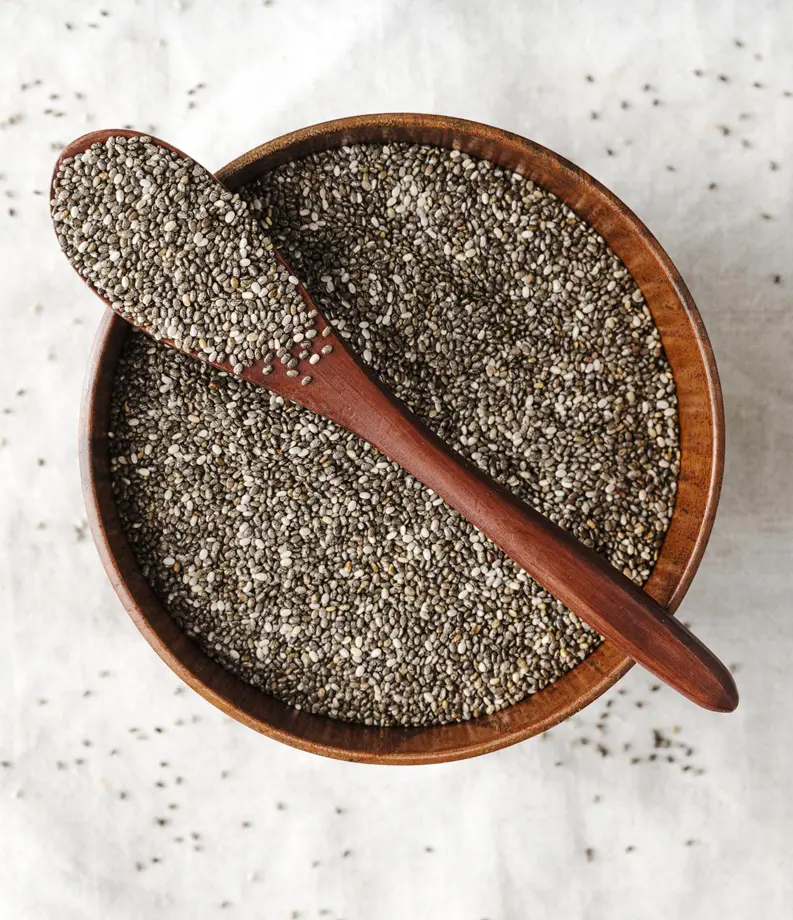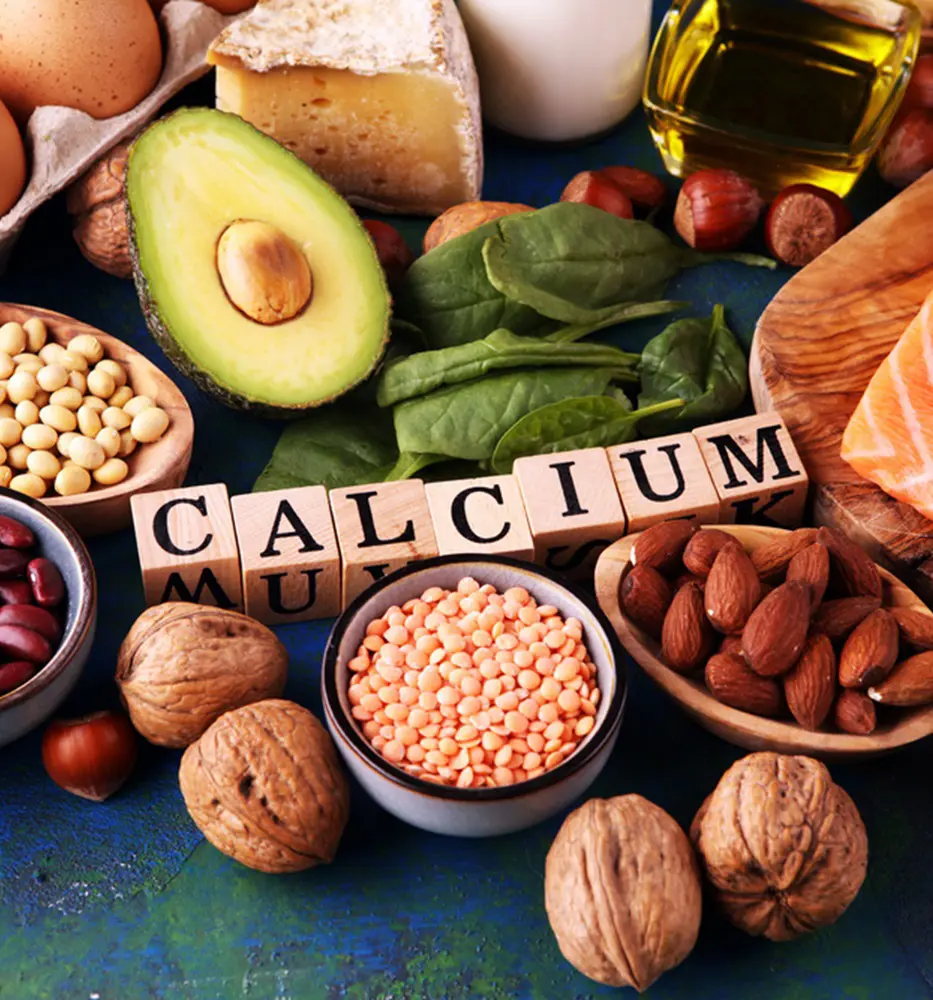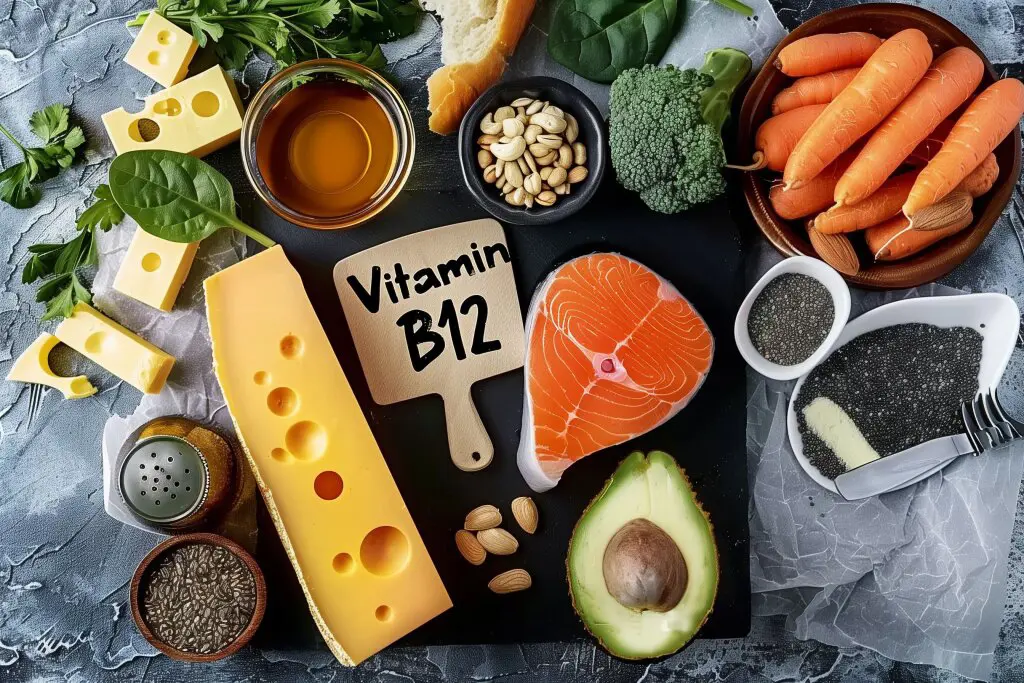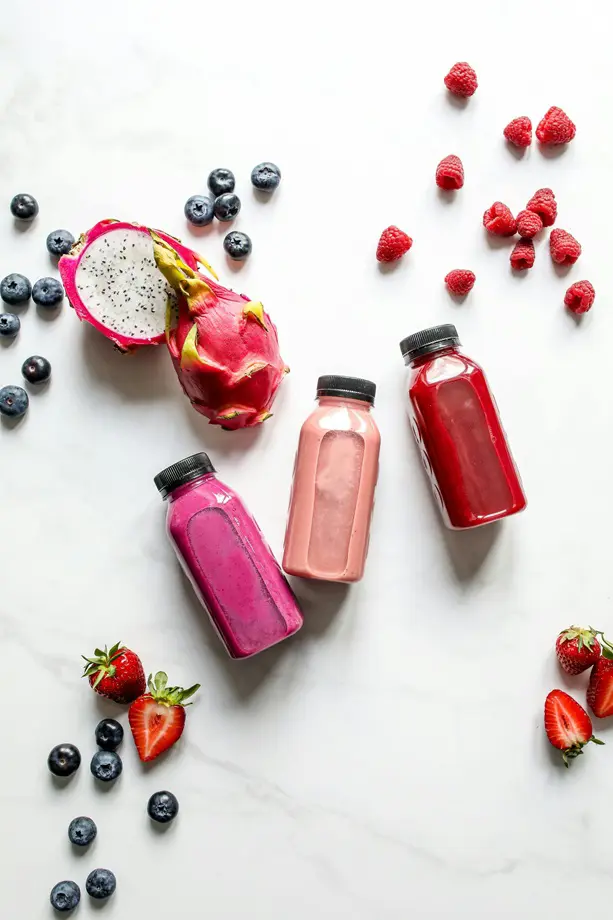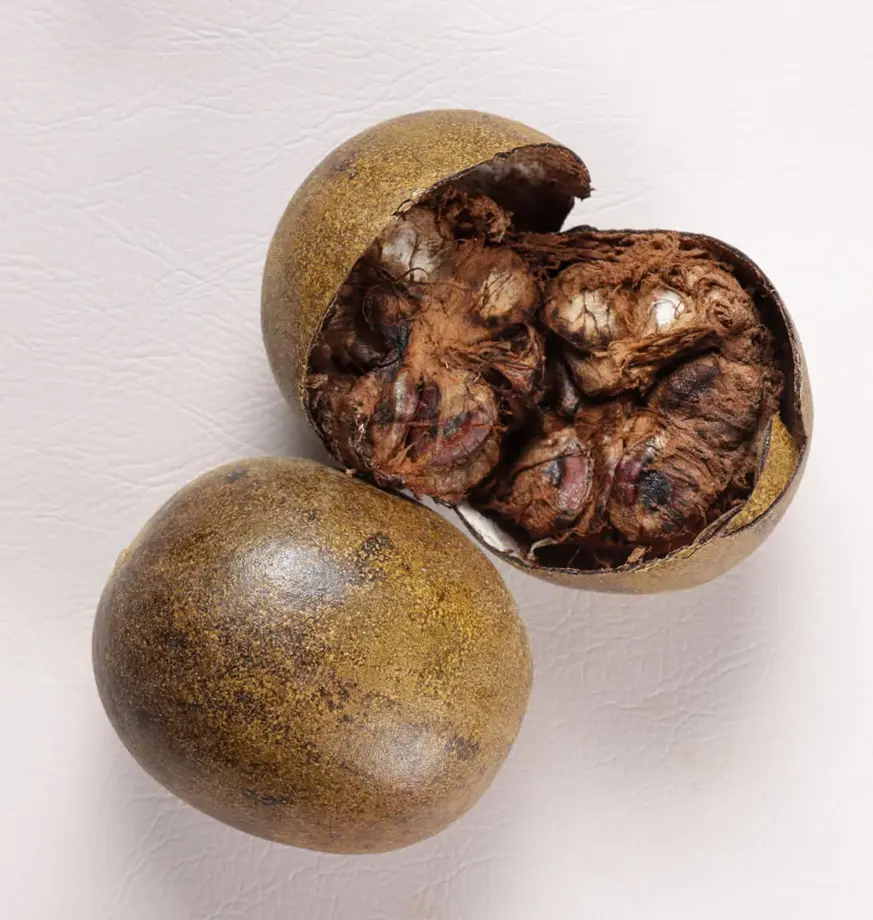What Foods Are High In Cholesterol? 20 Foods To Avoid
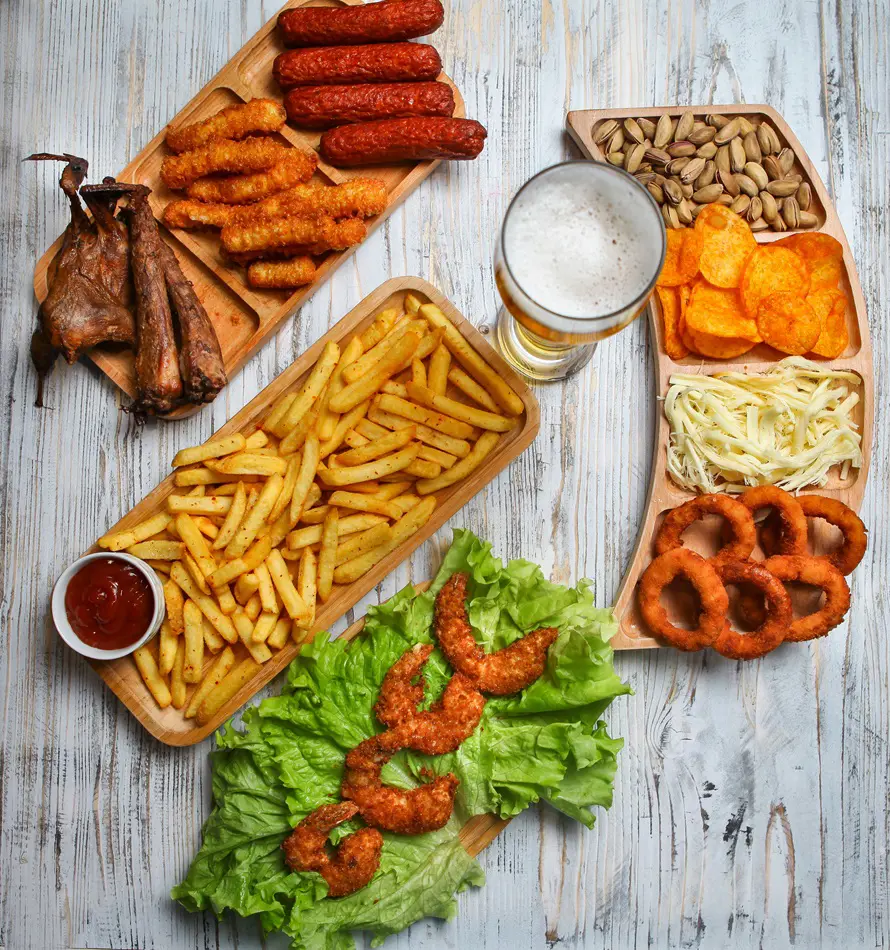
This post may contain affiliate links. If you make a purchase through links on our site, we may earn a commission.
Animal products like meat, eggs, milk, and cheese are sources of dietary cholesterol, unlike plant-based foods. For those aiming to lower their cholesterol intake, it's essential to be mindful of animal-based food choices.
While some high-cholesterol foods, such as eggs and shellfish, offer significant health benefits when consumed in moderation, it's crucial to maintain a balanced diet. Cholesterol plays a vital role in various bodily functions, but excessive intake can be detrimental.
To make informed dietary choices, it's helpful to identify cholesterol-rich foods. For healthy individuals, a daily cholesterol intake of under 300 mg is recommended. Here we have compiled 20 foods high in Cholesterol to avoid from your diet.
1. Shrimp
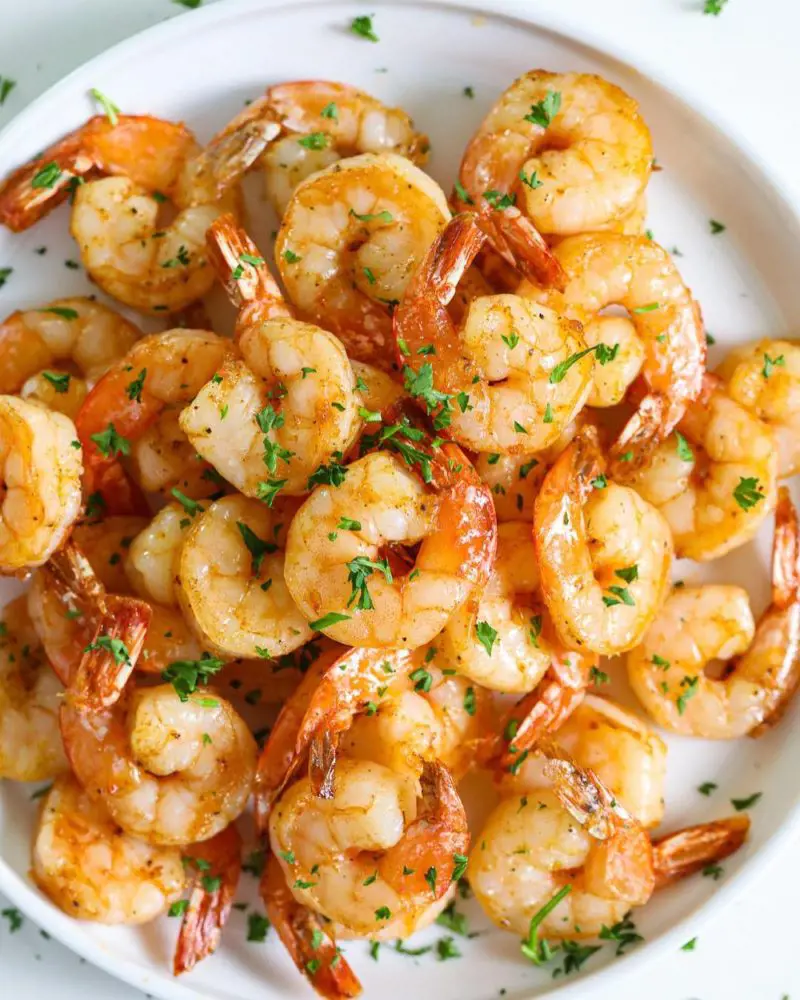
According to USDA, 100 grams of raw shrimp has a total of 134mg of cholesterol, which makes up more than 40% of the total recommended value.
Shrimps are however high in protein and vitamins B12 and D. Also, they are low in saturated fat compared to other protein sources like dairy products and red meats. To devour all these benefits, you can include shrimp once in a while in your diet.
2. Organ Meats
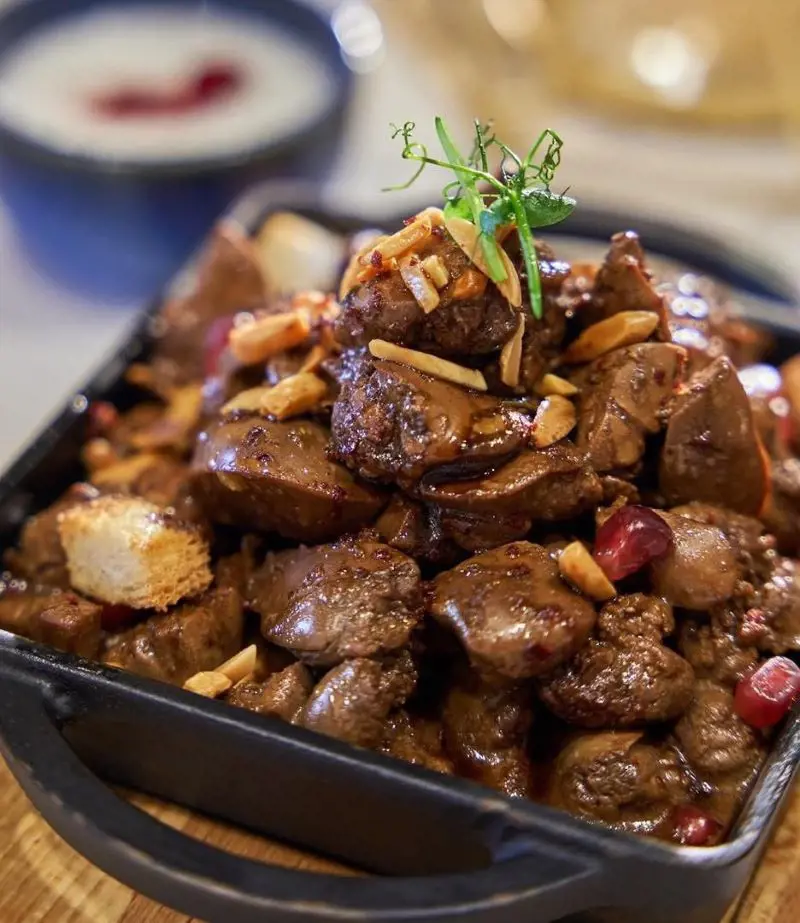
Organ meats are generally recommended to individuals lacking iron and zinc in their bodies. Though organ meats are important sources of certain minerals, after knowing their cholesterol content, you may want to take a few steps back from consuming them.
Here, we have brought the cholesterol content of 100 grams of various organ meats. The list may be helpful on deciding how much organ meats to include in your diet.
| Organ Meat | Cholesterol Content |
| Chicken heart (cooked) | 242 mg (81% DV) |
| Chicken liver (cooked, simmered) | 563 mg (188% DV) |
| Beef liver (braised) | 393 mg (131% DV) |
| Beef kidney (cooked, simmered) | 716 mg (239% DV) |
| Beef brain (cooked, simmered) | 3100 mg (1033% DV) |
3. Chicken Breast
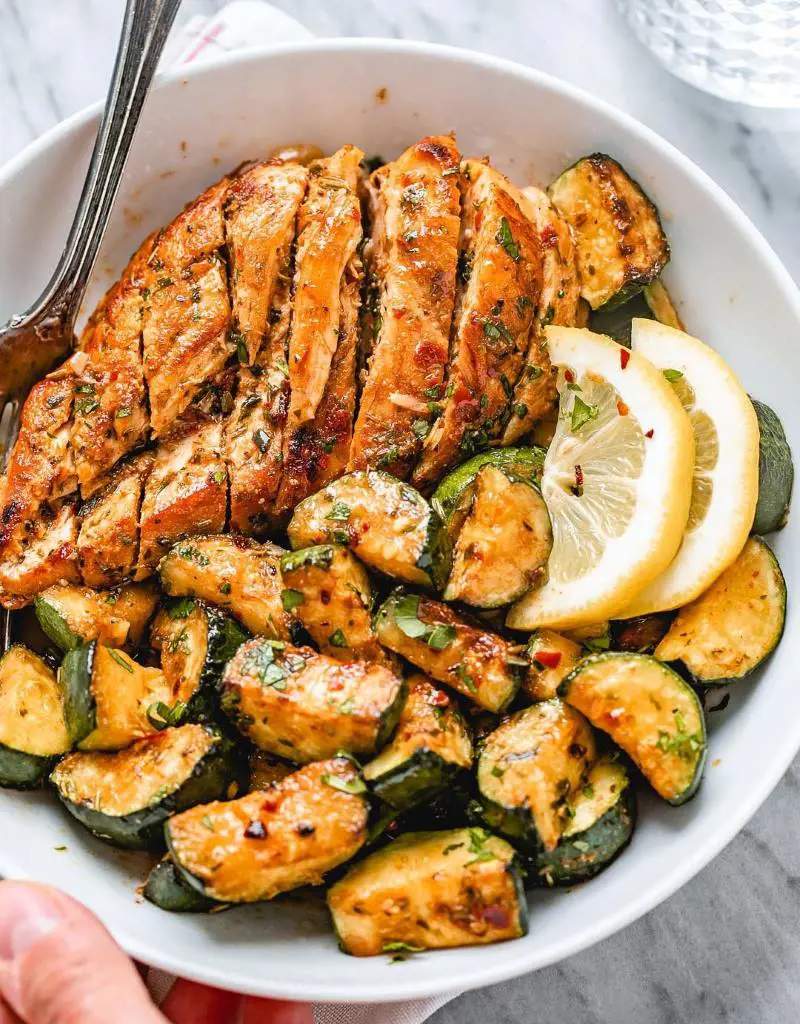
Chicken breast, a favorite of many contains 197.2 mg cholesterol per 170 grams of the meat. This can be a threatening value as it covers around 66% of the daily value intake.
Chicken breast however has a very low amount of saturated fat, making it a suitable choice of meat over red meats. The high-quality protein in chicken breast also makes it a praised meat option. Moreover, it is also rich in essential vitamins and minerals.
4. Eggs

A large, hard-boiled egg has about 62% of the daily recommended value of cholesterol. This value is mainly concentrated on the egg yolk.
As eggs are a very popular source of protein, you don't have to completely give up on them. The good news is egg whites have almost zero amount of cholesterol which are still a safe source of protein. Moreover, eggs are full of antioxidants like zeaxanthin and lutein which can help in reducing diseases like eye problems.
5. Turkey Breast

A mere 6-ounce portion of roasted turkey breast offers a substantial 45% of the daily recommended intake for cholesterol. Preferred due to the low content of saturated fats and high-quality protein, the abundance of cholesterol does not make it a suitable choice for regular intake.
The important nutrients in turkey breast include B-complex vitamins B6, B12, and niacin. Minerals including iron, zinc, and potassium are also present that support body functioning.
6. Sardines
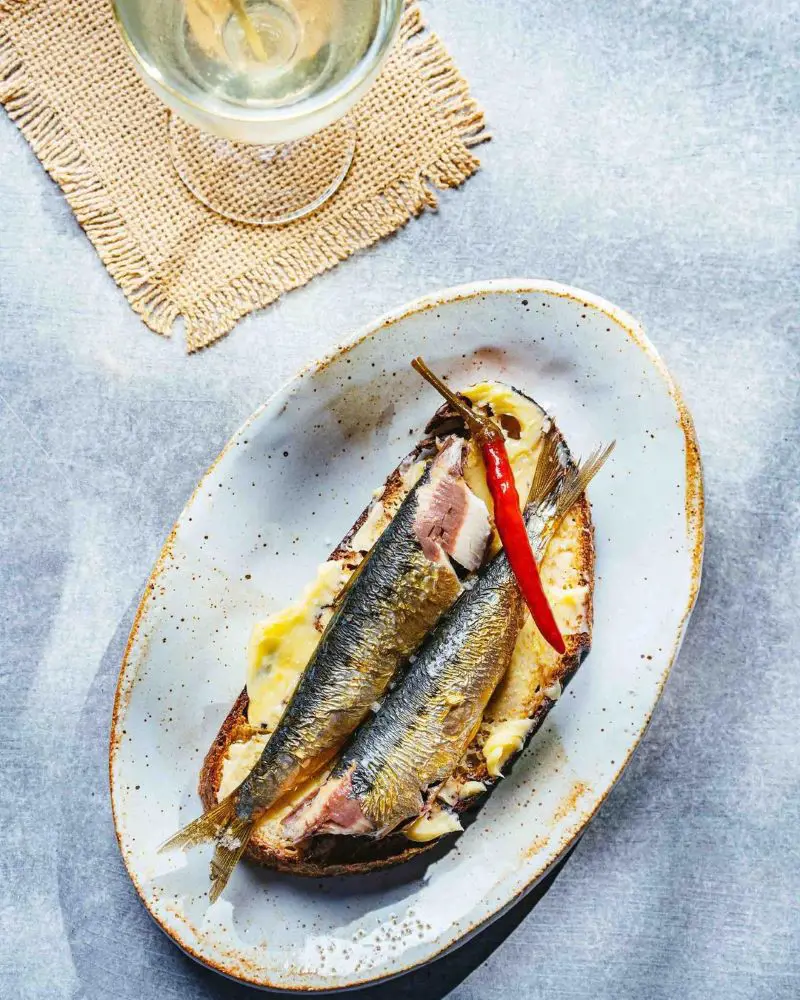
Sardines have a buttery mouthfeel, all thanks to their high oil content called omega-3 fatty acids. Though these fatty acids make consuming sardines healthy, the cholesterol content opposes this.
If we look at the value, 100 grams of canned sardines have 142 mg of cholesterol. This is about 47% of the recommended daily intake. So, whenever you are enjoying these little fishes, it's important to know that going for more is not healthy at all!
7. Mackerel
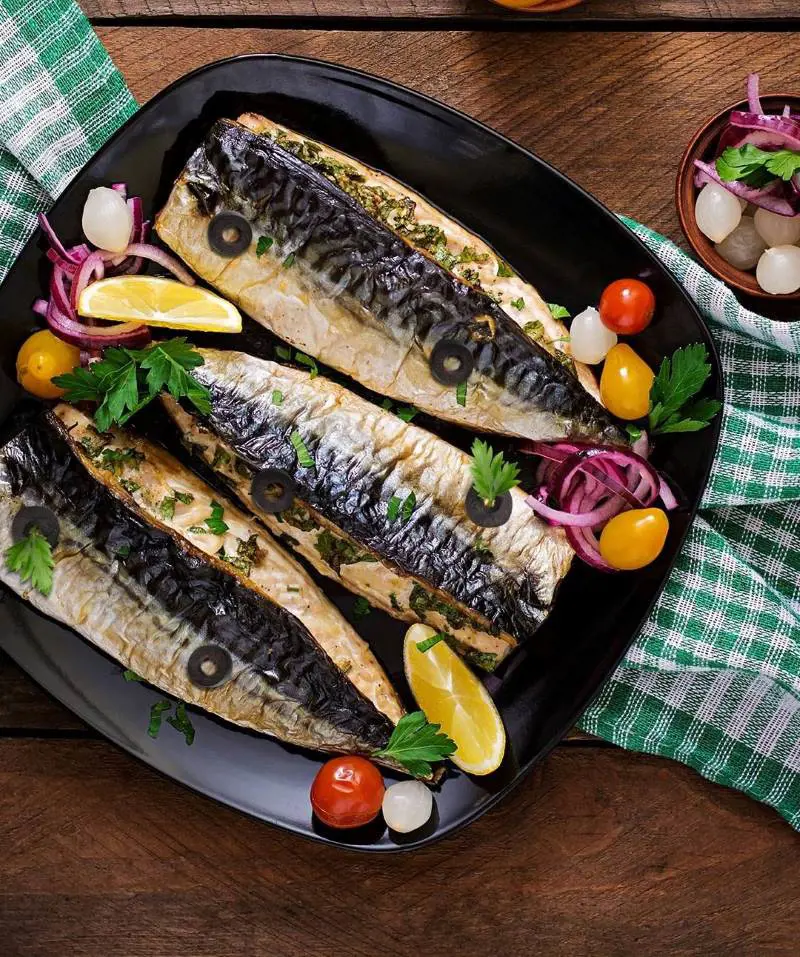
Mackerel, like sardines, holds significance as a globally consumed food fish. It has a noteworthy cholesterol content, with 100 grams of cooked Atlantic mackerel delivering 25% of the DV. Being an oily fish, it ranks as a rich source of omega-3 fatty acids, renowned for their ability to lower blood pressure.
What's important to know while consuming mackerel is that it is a highly perishable fish. So, to avoid food poisoning it should be properly stored. This gets even more important if you are someone residing in a tropical climate.
8. Crab

A 100-gram serving of cooked blue crab provides 32% of the DV for cholesterol. King Crab has slightly more cholesterol than blue crab. The ones on the lower side include snow crab and Dungeness crab.
Despite this content, what makes crabs appealing is less than 1% of the DV for saturated fat. The protein and omega-3 fatty acids content in this seafood brings a balance, making it a better choice among others.
9. Cheese

The major portion of cheese is fat. Saying that, the cholesterol level in it is also not less. Talking about the cholesterol content, 100 grams of Swiss cheese has about 93 mg of it. Cheddar and cream cheese have an even higher percentage of cholesterol than this.
The cholesterol content warns us to be thoughtful about the amount and types of cheese we consume, it does not necessarily restrict enjoying them little at a time. Moreover, cheese also has beneficial nutrients for the body including protein and calcium.
10. Salmon
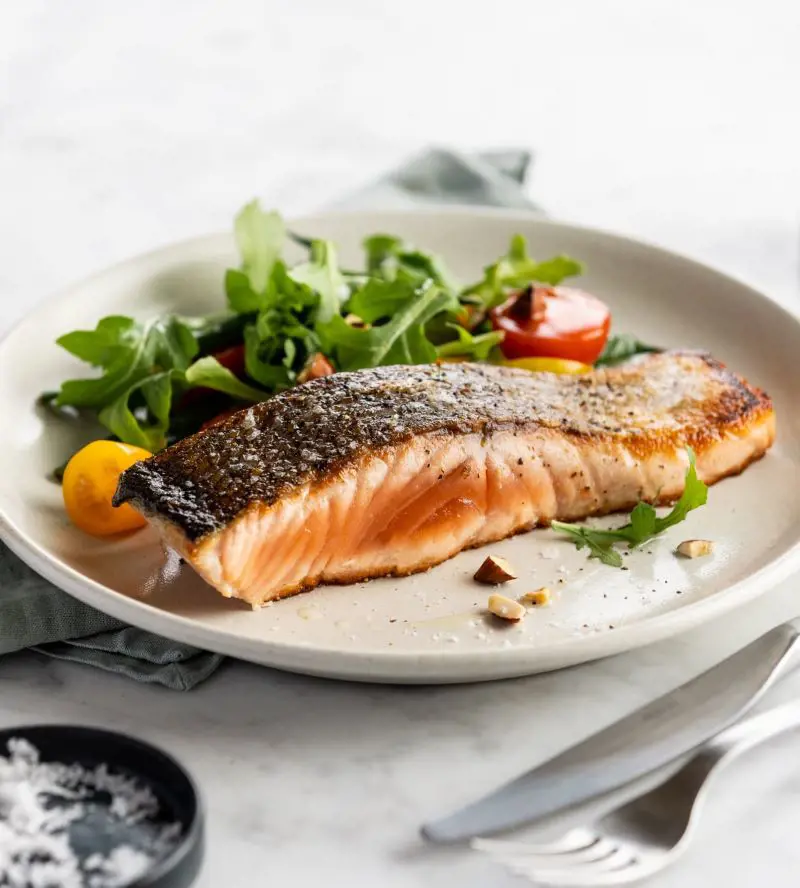
Salmon is one of the healthiest proteins. The omega-3 fatty acids content is also high in this fish, which is about 108% of the DV in 6 ounces of farmed, cooked Atlantic salmon. Talking about cholesterol, 36% of the DV is present in the same amount of fish.
American Health Association(AHA) recommends healthy individuals add at least two servings of 3.5-ounce fatty fish such as salmon, into their weekly diet. Doing this can help achieve benefits like proper functioning of the body and brain.
11. Full-Fat Yogurt
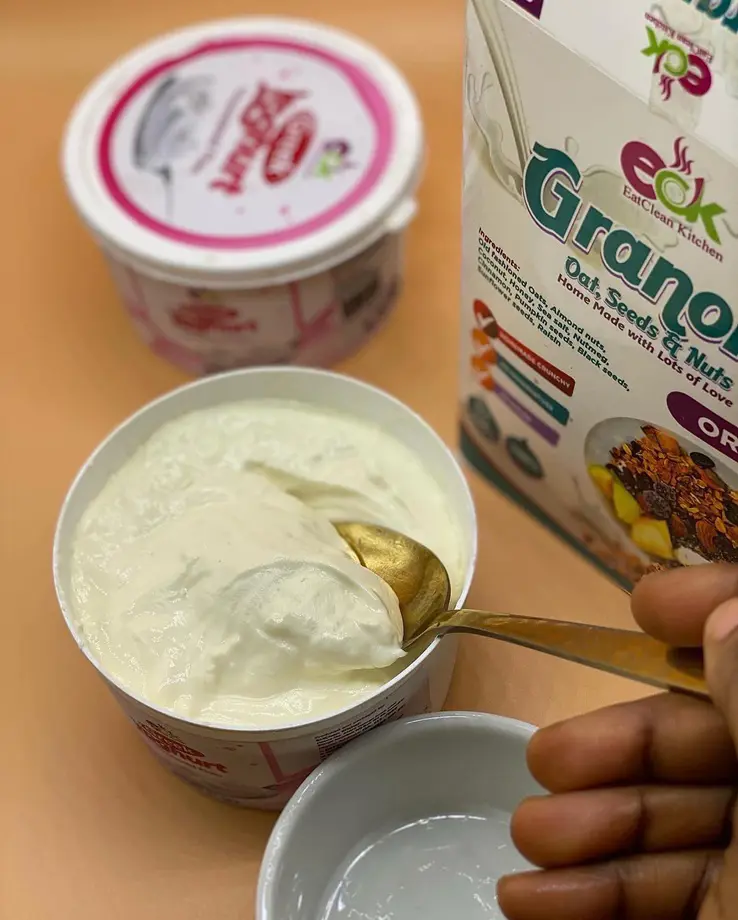
A 245-gram cup of plain whole-milk yogurt supplies 11% of the DV for cholesterol. Considered as a natural probiotic, protein, calcium and vitamins are highly available in yogurt.
If you are someone who has to consider cholesterol in your diet, you can switch to options like Greek yogurt, soy milk yogurt and other low-fat options. These options are also a potent source for maintaining a healthy gut and building up bones and teeth.
12. Whole Milk
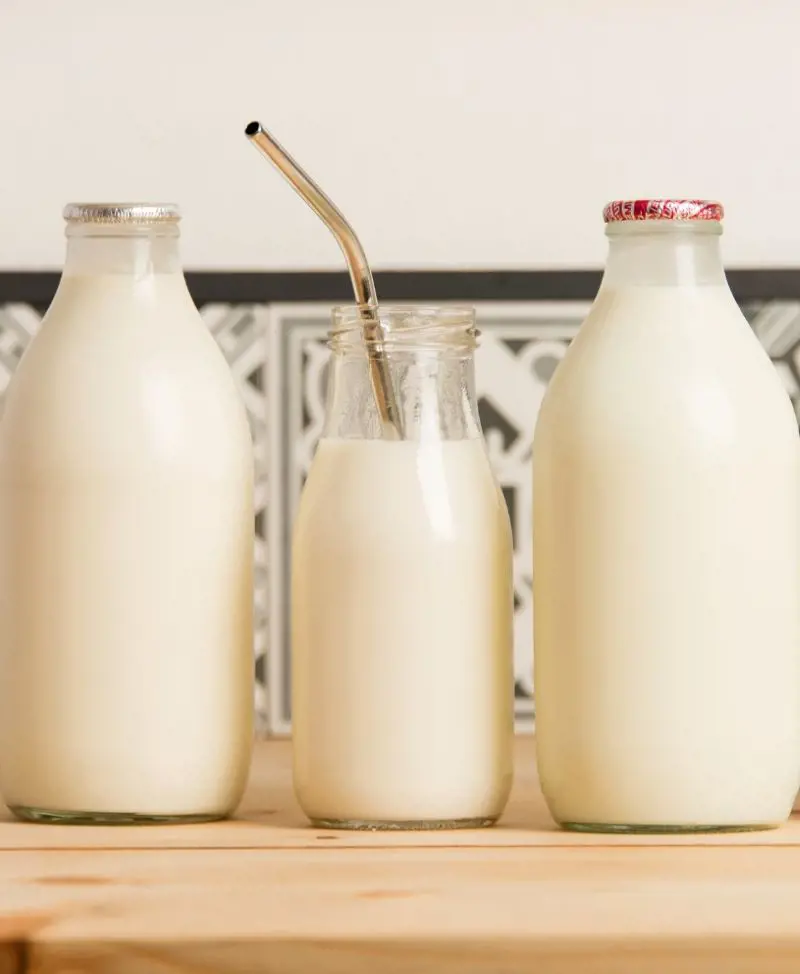
Whole milk has been used as a protein and calcium-rich source for ages. A 244-gram cup serving of this nutrition powerhouse has 10% of the DV for cholesterol. So, it can be among the foods a cholesterol-conscious person has to avoid.
Packed with all 13 essential nutrients like protein, calcium, vitamin A, vitamin D, vitamin B1 and riboflavin, healthy individuals however can consume it in moderation. All these nutrients have been proven to be helpful in the development of healthy bones, brain and body.
13. Fast Food

It comes as no surprise that fast food ranks at the top of the list of cholesterol-rich foods you should avoid. Fast food is high in saturated fat, trans fat, refined carbohydrates, added sugars, and excess salt, precisely the elements one should restrict when looking for a heart-healthy diet.
All the fast foods you drool over including burgers, fried chicken, onion rings, sandwiches, hot dogs, and tacos have up to 90% DV of cholesterol. The combination of unhealthy compounds in these foods makes them food choices to be ignored by individuals with heart conditions.
14. Fried Foods
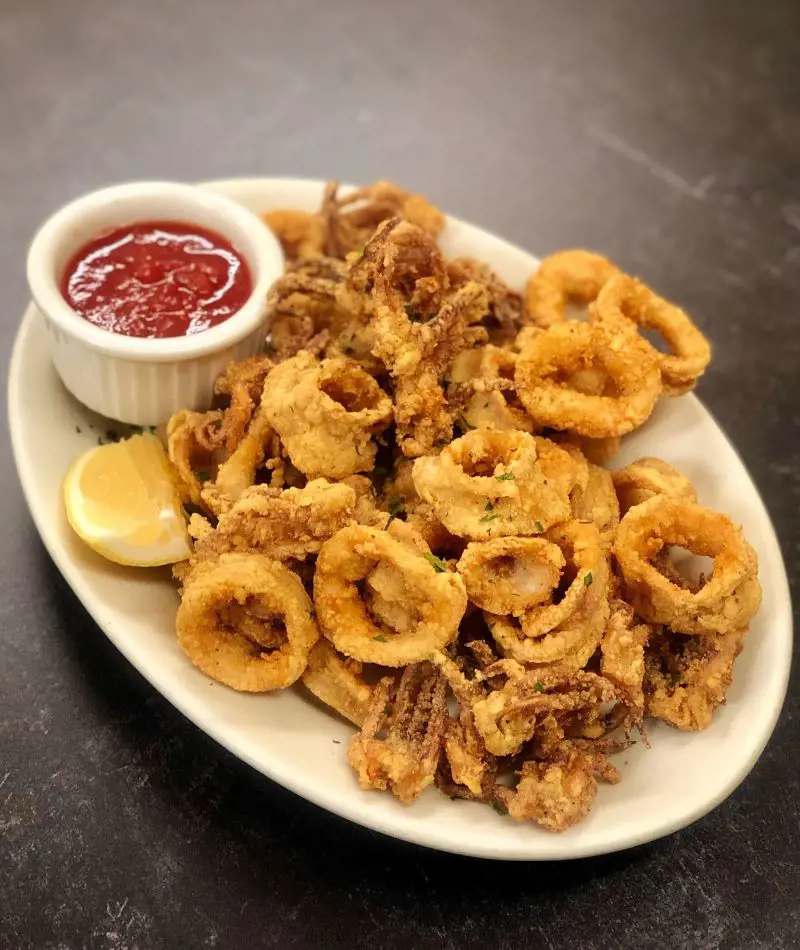
Fried foods, mainly deep-fried cheese sticks and meats, have a notable amount of cholesterol. The unhealthy fats used for the preparation of these foods are what make whole foods unhealthy.
The cholesterol content is the probable reason why it's advised to avoid these foods whenever possible. Let's delve into the cholesterol levels of some fried foods.
- Fried calamari, 3-ounce serving: 221 mg (74% DV)
- One KFC fried chicken breast with skin: 161 mg (54% DV)
15. Mozzarella Sticks

A restaurant serving of mozzarella sticks (245 grams) delivers a substantial 29% of the DV for cholesterol and a whopping 84% of the DV for saturated fat. Additionally, it contains approximately 1 gram of trans fats, which are known to be detrimental to heart health.
While mozzarella sticks are a tempting option, it's generally a wiser choice to opt for foods like tofu fries for a heart-healthy option.
16. Processed Meats

Bacon, hot dogs, and sausages, mostly all processed foods are high in cholesterol. These meats are not only cholesterol-rich but also contain excessive sodium which is not considered for heart health.
Let's examine the cholesterol content of the following processed meats per 100 grams:
- Smoked link sausage, pork and beef: 58 mg (19% DV)
- Bacon (rendered fat, cooked): 97 mg (32% DV)
- Frankfurter or hot dog, beef: 61 mg (20% DV)
17. Butter
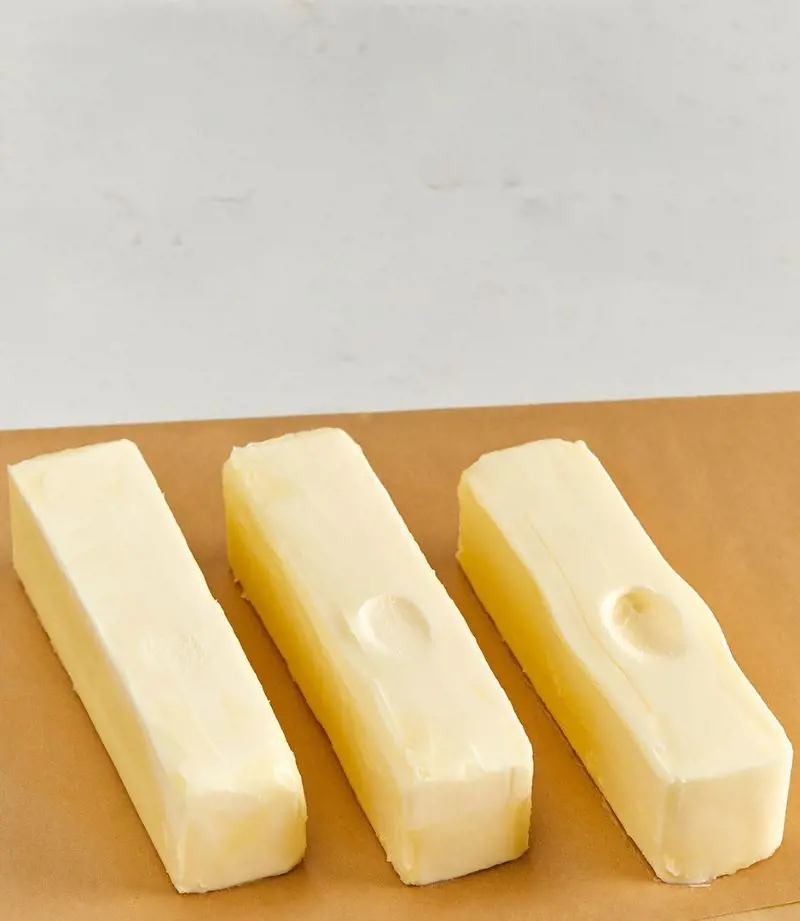
A single tablespoon of salted butter contains 30.5mg; 10 percent of the DV for cholesterol. Also, butter has about 36 percent of the DV for saturated fats. Being a calorie-dense food, its intake must be balanced with overall calorie intake.
It's not like other nutrients are not present in them though. Vitamins are present in butter as well but the high fat content easily outweighs the benefits, particularly for those who have cholesterol concerns.
18. Pork Chops

Fatty red meats such as pork chops are rich in cholesterol as well as fat that should be restricted: saturated fat. A single pork chop with its fat content supplies 59% of the DV for cholesterol and 46% of the DV for saturated fat.
These values do not necessarily mean you completely have to give up pork chops, rather you should consume them thoughtfully. Also, it's best to choose lean cuts like sirloin or pork loin for people who are strictly watching their cholesterol levels.
19. Desserts

Desserts like cakes and ice cream are prepared using high-cholesterol ingredients. Some such ingredients include cream, butter and full-fat milk. Added sugars and refined flour used for the preparation also make them linked with body conditions like obesity and diabetes.
Let's explore the cholesterol content of several sugary desserts per 100-gram serving:
- Chocolate cake (without frosting): 58 mg (19% DV)
- Chocolate chip cookies (made with butter): 70 mg (23% DV)
- Ice creams, vanilla: 44 mg (15% DV)
- Ice creams, chocolate: 34 mg (11% DV)
20. Whipped Cream

Heavy cream is high in cholesterol as well as saturated fats. A cup of heavy whipping cream (fluid) which is about 120 grams supplies 45% recommended DV of cholesterol.
This overall fat content means that the whipped cream should be balanced with healthy ingredients before enjoying. Also, healthy nutrients like calcium, vitamin A, and vitamin D are what make consuming whipped cream once in a while worth it.
Recent posts
Nutrition
Nutrition
16 Benefits Of Coriander That Will Surprise You
Abundant in nutrients and antioxidants, coriander is an annual herb with a characteristic aroma that is extensively used around the world. Both coriander leaves (also called cilantro) and seeds are used in various cuisines around the world. Known fo...
Nutrition
Chia Seeds Benefits: 15 Reasons To Eat These Tiny Seeds
Chia seeds are tiny edible seeds obtained from the plant known as "Salvia hispanica", belonging to the mint family. Oval, gray, and filled with black and white spots, these small seeds are highly valued for their abundant nutrients and health be...
Nutrition
How Much Calcium Is Actually Needed?
Calcium is a mineral associated with bones, muscles and the nervous system in the body. Current dietary guidelines suggest different Recommended Dietary Allowances(RDAs) for adult males and females, with 1000mg being optimal for males and 1200mg for...
Nutrition
B12 Vitamin Food Sources: A Comprehensive Guide
Vitamin B12, an essential nutrient, plays a crucial role in various bodily functions, including red blood cell production, nerve function, and DNA synthesis. While animal-based foods are the primary sources of B12, certain fortified plant-based foods...
Nutrition
18 Fat Burning Smoothies For Weight Loss
The weight loss journey is tough if you have to get on the same path day after day, facing cravings and temptations along the way. We suggest you stop making it a monotonous struggle and make it a flavorful adventure instead. One of the easiest and m...
Nutrition
Are Egg Whites Good For You? Benefits, Nutrition, And How To Eat?
Egg whites are popular these days while egg yolks are considered a health havoc. This claim is not always true but if you are someone who is going through weight gain problems or other conditions like heart disease, it's important to focus on egg whi...

